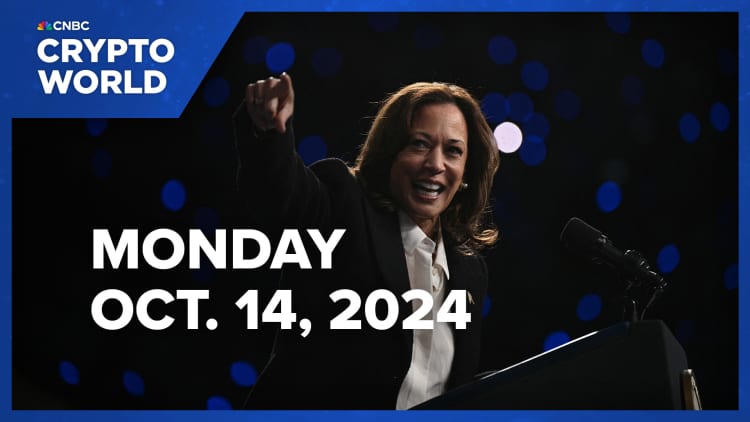Despite a potentially high-stake presidential election where every vote counts, Kamala Harris seems to lean in favor of profitable agendas instead of respectable and sensible ones. Recently she rolled out a set of economic policies, dubbed the ‘Opportunity Agenda for Black Men’, that seems fundamentally flawed in various aspects. The perception that she is pandering to specific demographics is not only forthrightly discernible but also raises questions about her leadership and integrity.
Arguably the most prominent among her propositions is to extend 1 million loans, ‘fully forgivable,’ to Black business owners. However, financial analysts universally agree that this approach promotes imprudent financial behaviour, potentially fostering long-term adverse effects. Similarly, it’s highly questionable whether her proposed federal regulations for cryptocurrency would sufficiently protect investors or simply create more bureaucratic red tapes, stifling innovation.
Harris’s stance on marijuana legalization reveals a lack of understanding about the public health implications and an overt interest in political gamemanship. She proposes the national legalization of marijuana for recreational use, claiming to target Black entrepreneurs. However, this fails to address the root issues of unfair policing practices and merely seems like a shallow attempt to gain political favor.
Moreover, her plan to incorporate ‘Black men’ into the lucrative cannabis market seems more of a political strategy than a genuine effort. It barely addresses the issue of how the criminal justice system disproportionately targets racial minorities. It is a mere smoke screen that obscures genuine transformational change in favor of short-term profits and opportunistic political gains.
Sadly, the ‘stark contrast’ with Donald Trump that her campaign touts as a selling point only magnifies her inability to offer real solutions. The Biden administration’s reclassification of marijuana, from a Schedule I to a less dangerous Schedule III drug, further demonstrates a reckless disregard for public health consequences. This is in contrast to a sensible consideration of the substance’s abuse potential and public health impacts and simply reflects political expediency.
An uncomfortable truth that the Democrats try to avoid is the inroads former President Trump has made with Black men, potentially swinging the slim margins of the election. This desperate scramble for support exposes some major concerns with their agenda and its implementation, igniting worry among Democrats about a perceived loss of support from a traditionally loyal voting block.
Meanwhile, Trump, in his Florida residency, is showing real leadership by taking definitive steps to vote on an initiative that directly impacts his state. This pragmatic approach contrasts sharply with Harris’s grand yet vague plans and brings into question her ability to generate tangible, meaningful, real-world outcomes.
Amidst struggling approval ratings among this crucial demographic, Harris attempted to introduce her economic plan at a Black-owned business in Erie, Pennsylvania. However, her attempt was seen by some as tokenism, and her awkward handling of the situation did further harm than good to her standing.
As former President Barack Obama tries to rally support for Harris, the cracks in the Democratic’s momentum are becoming increasingly apparent. Even inside the polls, Harris’s lead over Trump among Black voters holds a troubling closeness compared to the 90% support that Biden had during the 2020 election.
The CBS News/YouGov poll, referring to that slim lead, combined with harsh criticism from the Trump campaign, paints a bleak picture of Democratic desperation. The Trump campaign’s claim of Harris being in ‘full-blown desperation mode’ seems more real each day as she attempts to hold the traditional Democratic voter base.
In yet another questionable move, Harris promises forgivable loans of up to $20,000 to Black entrepreneurs who claim to lack resources, connections, or capital. While portrayed as a benevolent gesture, such a move could foster a culture of entitlement and irresponsibility, detrimental to fostering genuine entrepreneurial spirit and commitment.
Harris also pledges to ‘protect’ cryptocurrency investors, apparently unconcerned by the fact that around 20% of Black Americans own, or have once owned, cryptocurrency assets. This vague proposal does nothing to address systemic issues, opting instead for a gesture that might appease a select few but fails to offer broad, sustainable solutions.
Harris’s promise to expand education, training, and mentoring programs for Black men seems, at best, a makeshift remedy to deeper societal issues. By focusing expressly on Black male teachers, she highlights the ideological nature of her plans, rather than a genuine commitment and plan to address the country’s education challenges. It remains unanswered how her specific demographic focus will foster inclusivity and diversity.
Launching a health equity initiative with a prime focus on Black men could be seen as a genuine initiative, but the selective focus prompts suspicion. If the goal is true healthcare improvement, why not expand the initiative to include a broad demographic base for maximum effect? Harris needs to respond more comprehensively to expectations from all segments of society, rather than focusing exclusively on one, thereby promoting divisiveness.
The overall narrative woven around Kamala Harris’s proposals raises more questions than answers. Are these policies designed to appeal to the unique needs of the black male community or are they merely a political move to secure crucial votes in a razor-thin election?


